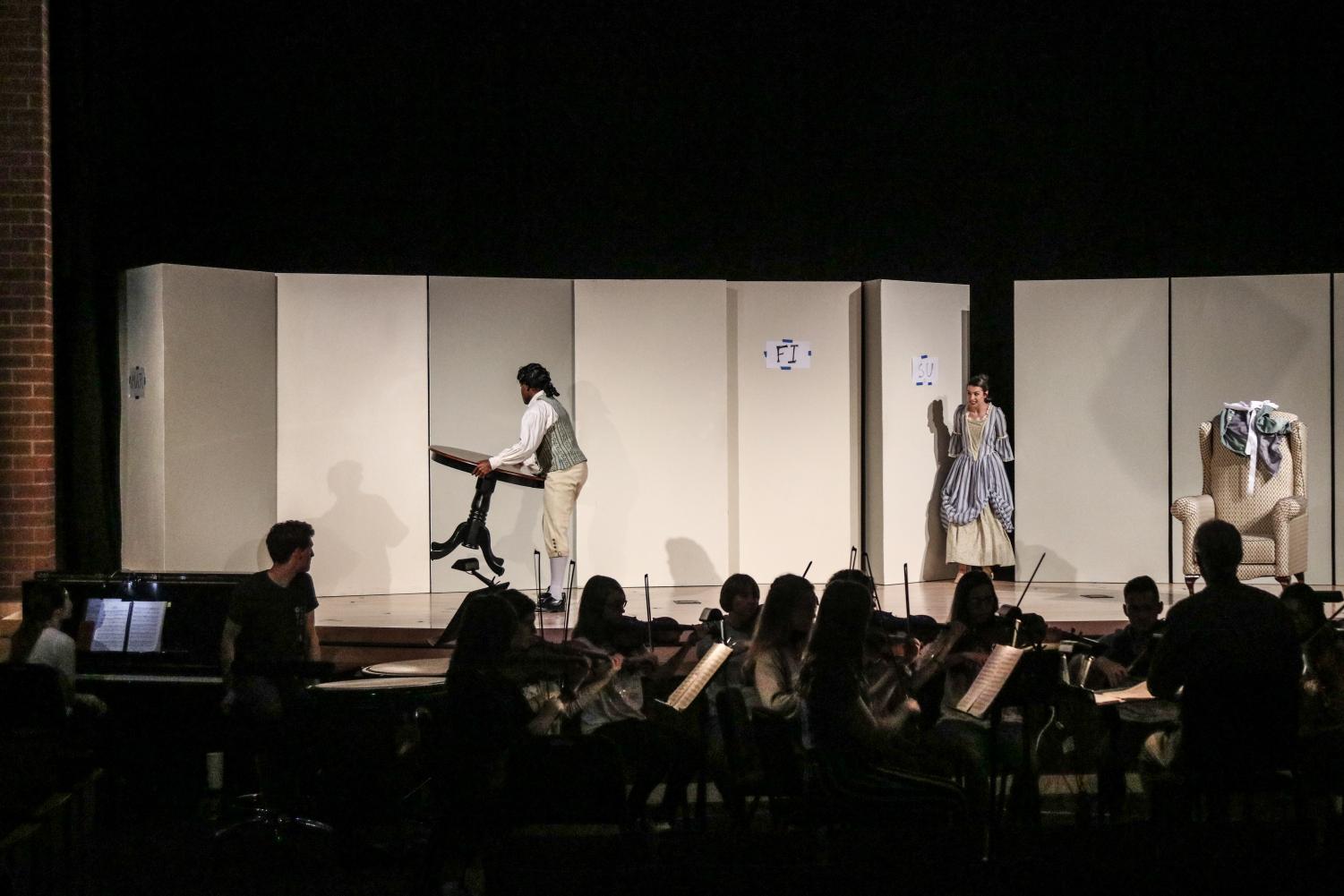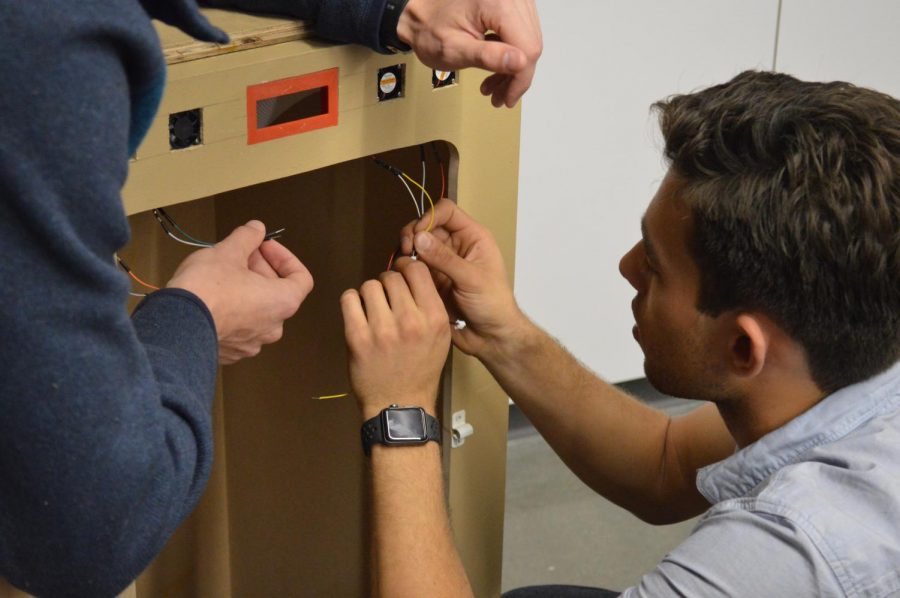This story was originally published in print on Jan. 31, 2019.
Biola’s vocal and orchestra departments are putting the finishing touches on their presentation of Mozart’s “The Marriage of Figaro,” a comedy that makes fun of serious situations, allowing audiences to laugh through difficult realities. The opera allows the cast, director, designers and orchestra the opportunity to express their creative sides in their own unique ways. It sneaks in messages that are relatable to our generation and the issues that we face. Additionally, it also presents the message that there is more than what meets the eye when it comes to individuals interacting with the social class system.
THE HISTORY BEHIND THE OPERA
“The Marriage of Figaro” was written before the French Revolution and takes aim at the ruling class. Jeanne Robinson, coordinator of vocal studies and artistic director for the opera, recognizes the significance of those themes in that era.
“It was risky to have an opera in which the ruling class was being made fun of,” Robinson said. “The smart ones in the opera are the servants, and they are constantly being made fun of by their master.”
MESSAGE OF MARRIAGE
While the story may be entertaining, it also contains a deeper message about healthy marriages.
“What I find most important about this show is that it really does talk a lot about the sanctity of marriage, and when you are not happy in marriage and not happy in love,” said senior vocal performance major Emily Nelms, who portrays housekeeper Marcellina. “It also talks about how the lack of communication, trust and satisfaction leads to a lot of people’s demise.”
She also emphasizes that the message should be kept in mind by Christians as well.
“We need Christians to remember the sanctity of marriage and to remember that even though marriage gets hard, it is still possible to continue on, keep going and really rely on God for that,” Nelms said. “I want Biolans to see that there is still hope when going through hard times in marriage.”
APPRECIATION AND PLOT
Senior vocal performance major Joshua Burke, who portrays music teacher Basilio, added what we wants the audience to walk away with.
“I just want our audience to come away from this opera with a better sense of fun and appreciation for the art style,” Burke said. “Many, many hours have been put in to really bring joy, fun and hilarity to the audience.”
Furthermore, Burke believes the opera contains a message about fidelity––that everything comes back around to get you.
IMMERSION PROCESS
The best actors immerse themselves in their roles. However, that process can be, but also very difficult for some. Junior music and voice major Elise Anderson, who portrays a maid named Susanna, is an experienced actress who has actually enjoyed the immersion process.
“I have always wanted to do something during this time period,” Anderson said. “Susanna is this wonderful balance of this pure soul, but she is also really feisty. It is about finding this fun balance between being snarky and being the voice of calm.”
PRESENT DAY REPRESENTATION
Senior voice major Jared Hughes believes that the opera parallels many current events.
“I know that it speaks volumes on what is going on today,” Hughes said. “At the time ‘Marriage of Figaro’ was written, it was a huge political statement. It was talking about the elites, those in power and those on the bottom of the social totem pole. Those same power dynamics are still in play today. Not necessarily in the same way, when you have royalty versus peasants. However, there [are] talks about the one percents versus the rest of America.”
Hughes also said he wants the audience to walk away from the opera related to its characters.
“I hope the audience can come away with that sense of themselves being represented as normal average people,” Hughes said. “Their stories are being told on stage, instead of a rich person’s story that is constantly being told.”
















